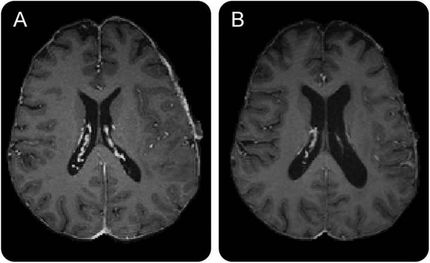European Commission Approves Kepivance(TM) (Palifermin) for Oral Mucositis in Cancer Patients
Advertisement
Amgen announced that Kepivance(TM) (palifermin) has received regulatory approval in the European Union (EU). Palifermin is now authorized in the EU to decrease the incidence, duration and severity of oral mucositis (mouth sores) in patients with hematologic (blood) cancers undergoing myeloablative therapy associated with a high incidence of severe oral mucositis, and requiring autologous blood and bone marrow transplant. In the EU, approximately 13,000 cancer patients undergo autologous blood and bone marrow transplant each year.
In patients with oral mucositis, the cells lining the mouth and throat are damaged by the chemotherapy drugs and/or radiation used in cancer treatment. Oral mucositis can be extremely painful and can have a devastating impact on patients. In fact, oral mucositis has been rated one of the most debilitating side effects by patients with blood cancers undergoing blood and bone marrow transplantation. Patients suffering from these debilitating mouth sores may require high doses of narcotics, such as morphine, and intravenous feeding to receive nutrition and maintain hydration.
The European Commission approval is based on a pivotal Phase 3 double-blind study that compared palifermin with placebo in the development of oral mucositis in patients with hematologic malignancies. Participants were randomized to receive palifermin 60 micro-g/kg/day (n=106) or placebo (n=106) intravenously for three consecutive days immediately before conditioning therapy (fractionated total body radiation plus high-dose chemotherapy) and for an additional three days immediately following blood and bone marrow transplant.
The incidence of the most debilitating grade of oral mucositis (grade 4) was three times less with palifermin (20 percent versus 62 percent with placebo), and the incidence of grade 3-4 mucositis where patients can only swallow liquids, if anything, was reduced by approximately one-third (63 percent versus 98 percent with placebo). Palifermin reduced the duration of painful oral mucositis (grades 2-4) by almost half or approximately one week (8 days versus 14 days with placebo).
The study found that patients treated with palifermin reported significantly less mouth and throat soreness, as well as improvements in their ability to eat, drink, swallow and talk. In addition, patients receiving palifermin required fewer days of morphine for their pain than patients receiving placebo (7 days versus 11 days, respectively).
Palifermin was shown to be effective and well-tolerated in this study. Adverse reactions seen in the study, such as rash, pruritus (itching), erythema (redness of the skin), edema, pain, fever, arthralgia (joint pain), mouth/tongue disorders and taste alteration were primarily mild-to-moderate in severity and transient.





















































